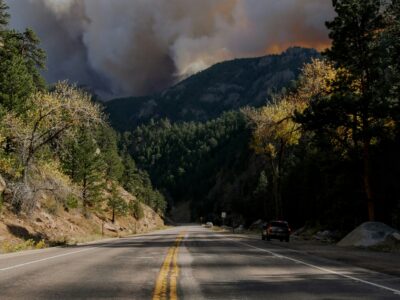Previewing a VERY Big Week for Environmental Law in the Courts
UPDATE: The Associated Press reports that late Sunday, February 26th, U.S. District Court Judge Carl Barbier announced a one-week postponement of the trial in the BP oil spill case that had been scheduled to begin the next day. The postponement is reportedly due to substantial progress that has been made in marathon settlement talks that have been underway among the parties to the litigation.
Next week is shaping up as one of the most consequential weeks for environmental law and policy in recent memory–at least as far as the courts are concerned. Courts in disparate parts of the U.S. will convene this week to resolve some of the nation’s most important environmental litigation.
Barring a global, last-minute settlement, on Monday U.S. District Judge Carl J. Barbier in New Orleans will gavel to order the trial in the massive and complex civil litigation arising out of the 2010 BP oil spill.

The trial brings together legal claims of the federal government, Gulf states, local governments in the region and a wide array of private plaintiffs seeking civil penalties and money damages. On the other side of the aisle will be British Petroleum and a handful of other corporate defendants associated with the largest offshore oil disaster in U.S. history: Transocean (the owner of the Deepwater Horizon oil platform), Halliburton (the company that poured the concrete that lined the well and malfunctioned), and Cameron International (the firm that manufactured the well’s blowout preventer, which didn’t in fact prevent the blowout).
Some observers are already referring to the federal trial, which will be heard by Judge Barbier without a jury, as “The Trial of the Century.” It will undoubtedly be one of the largest, most complex civil cases in recent American judicial history and, perhaps, the biggest environmental enforcement case ever to go to trial. Experts estimate the eventual damages that the corporate defendants will pay out at upwards of $40 billion. The financial stakes involved in the Gulf Oil Spill trial came into sharper focus earlier this month when a relatively minor player–MOEX Offshore, which owned a 10% share of the well but had no role in its operation–settled the federal and states’ claims against it for $90 million. That figure includes the largest civil penalty ever recovered in the 40-year history of the Clean Water Act–but one that will undoubtedly soon be eclipsed by payouts from the bigger corporate players still involved in the litigation.
Loyola University Law Professor Rob Verchick, who’s based in New Orleans, has already commented on the run-up to the trial, and promises further, regular reports while it’s underway. (The multiphase trial is expected to extend into 2013.) Here’s Rob’s blog site.
This Tuesday and Wednesday and 1500 miles away, all eyes will be on Washington, D.C. There, a three-judge panel of the D.C. Circuit Court of Appeals will hear two full days of oral arguments on a multitude of industry challenges to the Obama Administration’s efforts to regulate greenhouse gas emissions from stationary and vehicular sources under the federal Clean Air Act.
Recall that in 2007, a closely-divided U.S. Supreme Court held in the landmark Massachusetts v. USEPA case that greenhouse gases are “pollutants” subject to regulation under the Clean Air Act. Upon taking office in 2009, President Obama directed the USEPA to commence rulemaking proceedings to do just that. Those efforts quickly met resistance from the regulated community, who filed a multitude of lawsuits in the D.C. Circuit seeking to overturn or delay those federal regulations. Like the district court in New Orleans presiding over the BP spill trial, the judges of the D.C. Circuit have consolidated those cases, which the Court of Appeals panel will hear this week.
At issue in this multifaceted litigation under the Clean Air Act are USEPA’s so-called “endangerment” rule; its “timing” rule; the “tailoring” rule; and USEPA’s “tailpipe” rule. The non-partisan Environmental Law Institute points out that the D.C. Circuit’s ultimate decisions regarding these four rules “have the potential to halt, delay, modify, or greatly increase the scope of greenhouse gas regulation under the [Clean Air Act]” ELI further observes, without overstatement, that “[t]he stakes are among the highest in recent environmental litigation.”
A special note for those who can’t be in the Washington, D.C. appellate courtroom as the legal arguments play out this week: ELI, in partnership with Georgetown Law’s Climate Center and others, will be hosting a half-day program this Thursday morning, March 1st, to deconstruct the two preceding days of arguments before the D.C. Circuit. The March 1st event will be accessible via conference call, and is free for those who register in advance. More information and an opportunity to RSVP can be found here.
Fasten your seat belts–it’s going to be a momentous week for environmental law and litigation.
Reader Comments
8 Replies to “Previewing a VERY Big Week for Environmental Law in the Courts”
Comments are closed.







Excellent points! I really appreciate the person who wrote this article. The information added by way of social institutions to govern behavior. These guidelines a big help for us to know more about law and regulations. Thanks a lot!
Olathe dui lawyer
Excellent points! I really appreciate the person who wrote this article. The information added by way of social institutions to govern behavior. These guidelines a big help for us to know more about law and regulations. Thanks a lot!
Olathe dui lawyer
Your blog post is a help guide the investigation practice, go through the following high-level criteria and system factors for web-based systems, as well as the the good press reports. Many thanks for sharing it!
Your blog post is a help guide the investigation practice, go through the following high-level criteria and system factors for web-based systems, as well as the the good press reports. Many thanks for sharing it!